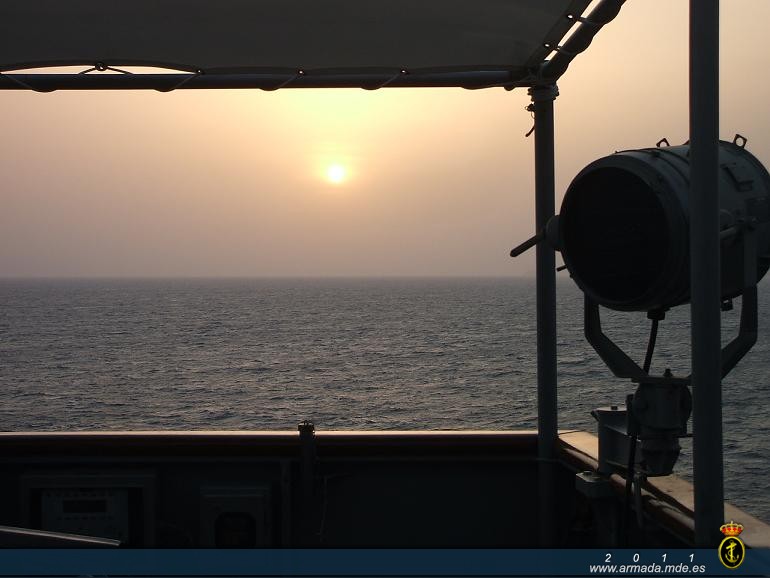Transfer of Pirates to Seychelles, Terms and Conditions (Exclusive)

(BRUSSELS2) The drafting of a comprehensive agreement on the transfer of pirates between the EU and the Seychelles government still poses certain questions which will take some time to resolve. But the pirate season has resumed.
(photo: barbarons beach - © NGV)
The increase in financial and logistical support from the EU, in particular, is discussed. The EU granted 800.000 euros. But the Seychelles would like more. The archipelago has, in fact, only one prison with 300 places, 12 of which would be reserved for people suspected of acts of piracy handed over by the international authorities. Which is very little. It would thus be necessary to enlarge the prison or to build another one. The Seychelles would thus like the Europeans to (re)put their hands in the wallet. The French Minister of Defence, Hervé Morin, passing through the country on Sunday, October 18, pledged to support this approach.
Also some fears
The great fear of Seychellois is also to see themselves overwhelmed by an influx of pirates from all walks of life and, above all, to have to offer them asylum upon their release (after their sentence or in the event of not being guilty), while the island has only a few inhabitants (about 83.000). Note that the archipelago is run by a temperate "revolutionary" government. The SPPF - Seychellois People's Progressive Front - has been in power since 1977. And the political leaders, even if they do not say so publicly, fear a certain "entryism" from the West and want to maintain their independence, by not appearing too linked to a field. India and the United States are also very present on the island.
Legal arrangement at three levels
To allow a rapid application of the transfer of pirates to the Seychelles, we have therefore found an interim solution. We used the technique ofthe exchange of letters" - commonly used in diplomatic matters to go quickly, for example in Chad at the beginning of EUFOR - accompanied by a "declaration" of the EU to recall some principles. A decision of the Council of the EU will give legal value to the within the European Union, to all of this. In addition, a compendium entitled "guidelines governing the transfer to Seychelles of persons suspected of acts of piracy or armed robbery and their seized propertys" has been established by the Attorney General of Seychelles so that the possible transfer of persons suspected of acts of piracy and armed robbery is carried out in accordance with the laws of Seychelles (a document also approved in principle by the It should be distributed to the various elements (boats, planes, on-board teams, etc.) operating in the area.
The conditions set by the Seychellois and accepted by the EU
Geographic condition
The transfer on the territory is limited to geographical conditions to persons:
- captured" during its operations in the exclusive economic zone and the territorial, archipelagic or internal waters of the Republic of Seychelles ».
- captured, beyond these limits, when they attacked "Seychelles-flagged vessels and Seychellois citizens on board non-Seychelles-flagged vessels as well as other circumstances on the high seas, at the discretion of the Republic of Seychelles ».
Logistical and financial assistance
The EU provides the Seychelles with “ all financial, human resource, equipment, logistical and infrastructure assistance needed to hold persons suspected of acts of piracy or armed robbery or convicted, take charge during their incarceration, lead the investigations, continue, judge and repatriate. (...)
In the event that the Attorney General decides that the evidence is insufficient to prosecute, EUNAVFOR fully supports, including financially, the return of suspected pirates and armed robbers to their country of origin. origin, within 10 days after EUNAVFOR has been informed of such a decision »
Procedure
“The Attorney General has at least ten days from the date of transfer of persons suspected of acts of piracy or armed robbery to rule on the sufficiency of the evidence presented for the purposes of prosecution. (...) The transfer of persons suspected of acts of piracy or armed robbery shall take place to the greatest extent possible in accordance with the guidelines governing the transfer to Seychelles of (suspects) »
Respect for human rights
The government assures that any transferred person is treated humanely, is not subjected to torture or cruel, inhuman or degrading treatment or punishment; is detained in adequate facilities, receives sufficient food, has access to medical care and can observe his or her religion ". The right to be judged within a reasonable time, or be released "; " to have their case heard fairly by a competent, independent and impartial tribunal "; " to be informed in a language they understand of the nature of the accusation "," to have the time (and the means to ensure his defense etc. are written in black on white.
Reminder of a few principles by the EU
1. International rights : " the Exchange of Letters is not intended to derogate, nor can it be construed as derogating, from any rights enjoyed by a Transferee under national or international law »
2. Access to prisoners : " representatives of the EU and EUNAVFOR will have access to persons transferred to the Republic of Seychelles under the Exchange of Letters for as long as they are kept in detention there and they may have the right to interrogate. They will be able to have a precise list of all the people transferred, in particular a file concerning the seized goods, the state of health of these people, the location of their places of detention, the charges brought against them and all the important decisions taken. in the context of the proceedings against them and their trial »
3. Witnesses, evidence and procedure : " I'EUNAVFOR stands ready to assist Seychelles in a timely manner by calling EUNAVFOR witnesses and providing relevant evidence. To this end, Seychelles should notify EUNAVFOR of its intention to initiate criminal proceedings against any transferred person, as well as the timetable for the disclosure of evidence and the hearing of witnesses.. » (*)
4. Visiting rights of NGOs. " The EU takes note that, at their request, national and international humanitarian agencies may also be allowed to visit persons transferred under the Exchange of Letters. »
(*) This last provision may seem obvious at first sight. But the leaders of EUNAVFOR are somewhat scalded (the word is weak...) of the legal proceedings in Kenya, where they bring in witnesses for a specific hearing which is canceled or postponed afterwards, or on the contrary decided at the last moment. ...

